Village of Bartlett Committee met Nov. 19.
Here is the minutes provided by the committee:
President Wallace called the Committee of the Whole meeting to order at 7:24 p.m.
PRESENT: Chairmen Camerer, Carbonaro, Deyne, Gabrenya, Hopkins, and President Wallace
ABSENT: Chairman Reinke
ALSO PRESENT: Village Administrator Paula Schumacher, Assistant Village Administrator Scott Skrycki, Senior Management Analyst Samuel Hughes, Finance Director Todd Dowden, Planning and Development Services Director Roberta Grill, Public Works Director Dan Dinges, Public Works Engineer Bob Allen, Building Director Brian Goralski, Golf Course Superintendent Kevin DeRoo, Police Chief Patrick Ullrich, Deputy Chief Geoff Pretkelis, Deputy Chief Jim Durbin, Village Attorney Bryan Mraz and Village Clerk Lorna Giless.
FINANCE & GOLF, CHAIRMAN DEYNE
Proposed Capital Budget
Finance Director, Todd Dowden stated that this is the proposed capital budget which once approved, the first year of which will roll into the operating budget.
On page T1 of the proposed capital improvement plan, all five years of the Capital Improvement Plan (CIP) are shown. 2020-2021 is $15,703,000 and that is the year that staff is looking to approve to roll into the next operating budget year. The five year total for the CIP is $98,000,404. On the next page of the CIP, you can see a spike of activity in the year 2021-2022, which is when the waste water treatment plant project is scheduled to hit. Tonight, staff is going to review the three new projects that are going to be introduced this year. The three new projects this year are water meter change outs, an irrigation system replacement for the golf course and veranda resurfacing and furniture at the golf course. The water project is going to start in the year 2022-2023 and last three years, totaling $3 million dollars, paid for out of the water fund.
Public Works Director Dan Dinges stated that the last time meters were changed was in the early 2000’s. They typically have a 20 year life. What staff is proposing is to turn the meters into a cellular network. Right now, when staff reads meters, they have a piece of equipment that is in the truck and public works crews have to drive all of the roads to collect the readings. With the cellular network, staff would not be required to drive the streets and we are always collecting that data. They would typically use village water towers to put up antennas and make sure it covers the entire village. Those signals would go to the meters than back to finance and public works so that staff can read those meters at any time. With cellular, you do not have the upfront cost of placing antenna’s on the towers, it would be a cellular rental fee. The village pays for cellular service and all of the meters would connect. As technology goes, it will have changed three years from now and we will evaluate the best system at that time. With the cellular network, it will save on manpower to not have staff out driving the roads which usually takes a couple of days. They usually have 1,500 final meter reads from people leaving and we have to send guys out to do that. The big advantage with it would be if someone has a leaky toilet for example. With the new network, we can put alerts on our system if the water meter runs continuously for (X) amount of hours, staff will get alerted that there might be a leak at (123 Main St. for example). Staff would then be able to contact the resident and let them know that their water is running so they can check if something is leaking.
Chairman Hopkins stated that some municipalities have it where the resident can call and see how much water they used that day and can get an alert on their phone if their meter is running.
Mr. Dinges stated that this system could do that. The alert would come to the village and to the resident.
Mr. Dowden stated that the next project to review is the irrigation system for the golf course. The engineering study phase would be in the year 2021-2022. The construction is planned for 2022-2023. Normally these kinds of projects are funded through our developer deposits fund.
Golf Course Superintendent Kevin DeRoo stated that the number one tool in his arsenal to have a successful golf course is water, you can’t grow grass without it. The irrigation system at the course is 21 years old and it fails regularly. On October 6th this year, they had a 3” main break which has happened three times in the last three years and it takes a hole or two out of service. According to the USGA, the life expectancy for our irrigation system is 10-30 years. The big fluctuation with that is geographical area. Down south, they don’t last as long because they use them 12 months out of the year, while ours is only used 7 months out of the year, but we have freeze thaw cycles which weakens the plastic pipe. In our area, it’s roughly 20-25 years.
Chairman Deyne asked what the life expectancy would be for the new irrigation system.
Mr. DeRoo stated that it would be in the same range, another 20-25 years. This price does not include the pump station. The pump station was replaced 10 years after the original system was put in, so it should last another 10 years after the new irrigation system is installed.
Mr. Dowden stated that the next item is the veranda resurfacing and furniture project at the golf course. This is scheduled for the coming year, 2021-2022. It is estimated at $40,000 and it would come out of the municipal building fund.
Mr. DeRoo stated that this project is in two phases. The first one would be resurfacing the north and south verandas. The current surface is peeling, cracked and water has gotten underneath and is causing some issues. There has also been some staining from rust from the furniture that we cannot clean off and overall, it is becoming very unsightly. When we are promoting weddings, especially if the bride wants to have an outside wedding, that is one of the first things they see. The next phase would be changing all of the outside tables and chairs that are currently out there. The new tables would have a rubber footprint instead of the wrought iron which has caused some of the rusting issues.
President Wallace asked if it was the front and rear veranda and if it’s just an estimate or do we have quotes.
Mr. DeRoo stated that was correct and it is an estimate.
Ms. Schumacher stated that one of those verandas is where we host the outdoor weddings. We have seen a 25% growth in the number of banquets hosted there and staff wants to keep that growth going. We are also attracting larger, higher revenue weddings and we want the facility to match that.
Mr. Dowden stated that part of the advantage of having a capital improvements plan is that it gives public works the opportunity to start work on these projects before the fiscal year budget is passed in April. The MFT program, water main replacement program and other programs need to be set up in advance of the physical work taking place in the summer. Again, the total is $15,703,580. If there are questions, staff would be happy to answer them, otherwise, staff will bring this to the next board meeting to approve the capital improvement plan and roll into the operating budget.
Chairman Camerer stated that the bike path maintenance line item was not a lot and with the amount of bike paths the village has, $40,000 would not go very far. He was curious if that was something they should look at financing more.
Mr. Dinges stated that he would agree if they were contracting it all. Public Works crews have been successful in doing some of the work so it is going a lot further. There are some areas that our crews are not geared to do like the stretch by Centennial School that crosses the creek, our staff did not have the equipment to do that and we ran out of time, so that should be done next summer. Next year they are planning to just use their crews and staff will be reaching out to the park district again to see what they can contribute as well. They have been contributing about $10,000 a year. For now, it should be adequate.
President Wallace stated that in the next year or two, he would like an estimate on what it would cost to do the crossing over Rt. 59 like they have south of St. Andrews. He wanted to at least get an idea of what the cost might be.
Mr. Dinges stated that they just did one on County Farm, so we can get that number.
Chairman Camerer stated that the west side of town would appreciate it.
Chairman Hopkins stated that we have talked about the Infiltration and Inflow regarding the sewer system and we have lined our sewers but it hasn’t really reduced our infiltration and inflow. From the meetings he has had with staff, he knows the lateral sewers are the culprit. He sees we have a 50/50 program in the capital budget, not to exceed $5,000. He thinks the village should be more aggressive with it. He thinks it should be $5,000 and then 50/50 after that. After the first year, we can see if there is any traction. The overhead sewer program is slow going because it’s 50/50 and he thinks this could really get homeowners to look at it.
Mr. Dinges stated that staff has been talking to communities and trying to figure out what people are doing. Staff talked quite a bit with Naperville and one of the things they are working on is lining of the mains, then the manholes and finally the services. They are lining the service lines from the main, past the right-of-way, at the full cost to the city. That gets you away from the storm sewer connections, and out into a yard that typically doesn’t have much infiltration other than ground water. From coming up that far off the main, the hope is that you are getting up above the water table. Naperville has seen good success from that end. Staff recently met with the village lining contractor that’s going to get started up in the next few weeks. They do lining and grouting of services, which is another thing Naperville does. They are going to be lining the main west of Oak, north of the tracks, south of Morse. While they are there, they are going to clean and televise, so we can see where some of the bad services are. We are going to have them do some of them so we can see what improvements we get. From there, they plan to go back to the area east of Oak that was already lined, and start hitting the services.
President Wallace stated that he isn’t opposed to that if you limited it. Maybe as an incentive, announce it as the first 10 homes that line their service will be paid for up to $5,000 and see if anyone jumps on it.
President Wallace stated that the Committee will be adjourning to Executive Session to Discuss the Sale of Village Owned Property Pursuant to Section 2(C)6 of the Open Meetings Act. President Wallace moved to adjourn to Executive Session. That motion was moved by Chairman Camerer and seconded by Chairman Carbonaro.
ROLL CALL VOTE TO ADJOURN THE MEETING TO EXECUTIVE SESSION
AYES: Trustee Camerer, Carbonaro, Deyne, Gabrenya, Hopkins
NAYS: None
ABSENT: Chairman Reinke
MOTION CARRIED
The meeting adjourned at 7:47 p.m.
President Wallace called the Committee of the Whole meeting to order at 8:13 p.m.
PRESENT: Chairmen Camerer, Carbonaro, Deyne, Gabrenya, Hopkins, and President Wallace
ABSENT: Chairman Reinke
President Wallace moved to adjourn the Committee of the Whole Meeting. That motion was moved by Chairman Deyne and seconded by Chairman Camerer.
ROLL CALL VOTE TO ADJOURN THE MEETING
AYES: Trustee Camerer, Carbonaro, Deyne, Gabrenya, Hopkins
NAYS: None
ABSENT: Reinke
MOTION CARRIED
The meeting adjourned at 8:13 p.m.
https://www.village.bartlett.il.us/Home/ShowDocument?id=10668

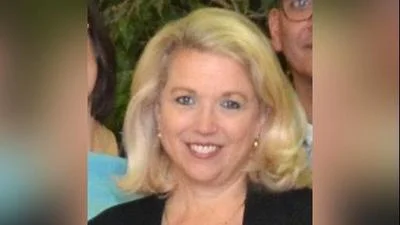
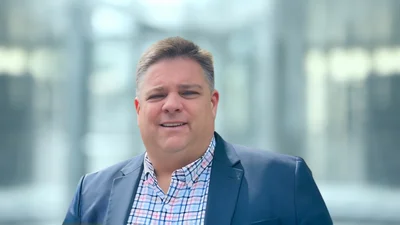
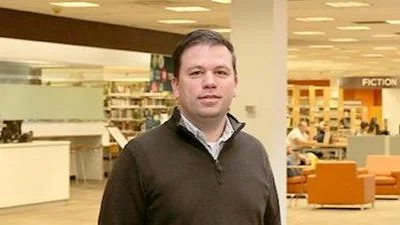
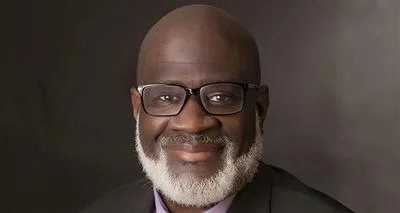
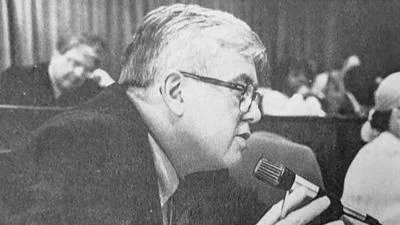
 Alerts Sign-up
Alerts Sign-up